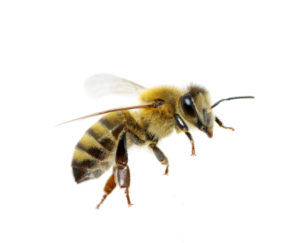The sting
- mrtedmaul
- Feb 22, 2020
- 3 min read
MOST of what’s gone wrong in British social and political life can be summed up with a fairly simple example using Jameela Jamil, a fruit-filled banquet and some bees.
It’s about belief, fact-picking, tribalism and self-deception. But first, the bees.
The story is fairly simple. The activist, actress, presenter and occasional model Jameela Jamil ran away from some bees once. Or possibly – if you prefer the other version – didn’t. Which version you believe is far, far more important than you might imagine, but we’ll get to that in time.
Ms Jamil was preparing to interview the musician Mark Ronson for TV, and it was decided that an outdoor balcony banquet would make an attractive setting. As she later told a chat show host, though, the sudden arrival of a swarm of treat-seeking bees forced a drastic change of plan – and a sharp exit for the bee-phobic (and allergic) Jameela.
Nothing too controversial there, you might think, or in a 2015 video of Mark Ronson apparently unable to remember the incident.
To a sizeable chunk of the online community, though, The Bee Story – and Mark Ronson’s version of it – has become a crucial piece of damning evidence in their War on Woke.
Jameela Jamil is outspoken about many issues – about self-image, feminism, race, disability, climate change and more. This has not gone down well with some. Piers Morgan, in particular, has become oddly fixated, as is often his wont, on this successful, outspoken and notably photogenic woman of south Asian heritage.
For a certain kind of troll, Jameela Jamil is massively triggering. Her views – which seem to amount to ‘don’t tell people who or what they are, look after the planet, don’t be a dick’ – seem to offend them at a very personal level. She enrages them, and they seem unable to rest until she’s been firmly and finally put in her place (wherever that might be).

When someone unearthed the 2015 footage of Mark Ronson denying the bee incident – he’s subsequently said he simply didn’t recall it – the trolls were all over it (rather like bees on a banquet, in fact). Because if the bee story isn’t true – and Mark Ronson said so, once, in a video! – then it proves Jameela Jamil is just a big lying liar. And, by a very simple extension of troll logic, if she’s lying about the bees, she must also be lying about climate change, gender issues, disability, LGBTQ stuff and everything else that trolls like to put in a big bag called ‘Woke’.
Deny the bee story and you get to deny it all. Find just one little hook to hang your entire belief system on, and you can leave behind the troubling world of facts, figures, proof and people who – yuck! – want you to maybe try to do just a little bit better.
And this is where the world is now. Social media makes it easy not only to find your own ‘alternative facts’, as Kellyanne Conway once described former White House press secretary Sean Spicer’s false statement about attendance figures at Donald Trump’s inauguration, but to band together with like-minded souls who’ll be only to happy to add some more and help reinforce even the most reality-defying views.
If one truth makes you uncomfortable, you can always find another one.
Because it’s all about individual belief now. Social media tells us we are all stars of our own little shows, all uniquely interesting, gifted and right. If we have even the slightest doubt of our rightness, all we need do is find a few people who are right in just the same way and our doubts can disappear, along with all the troubling evidence to the contrary.
I wasn’t there when the bee story happened (or didn’t, depending on your politics). In all likelihood, you weren’t either. But it doesn’t seem an unlikely story, nor does it seem unlikely that a musical superstar with a busy life and a zillion interviews behind him would have forgotten all about it. But choosing between the Jamil version and the Ronson version – deciding, even, that there must be a Jamil version and a Ronson version – has become a political act.
The internet was supposed to broaden our minds. For a while, in the early days, it did. But then structures and business models emerged to rein in its potential, driving like minds together and then finding ways to monetise division and outrage, encouraging a new and dangerous tribalism. We could’ve used it to make the world about all of us, together. Instead, Twitter, Facebook et al have made it about each of us, alone. And that’s the real sting in the tail.



Comentarios